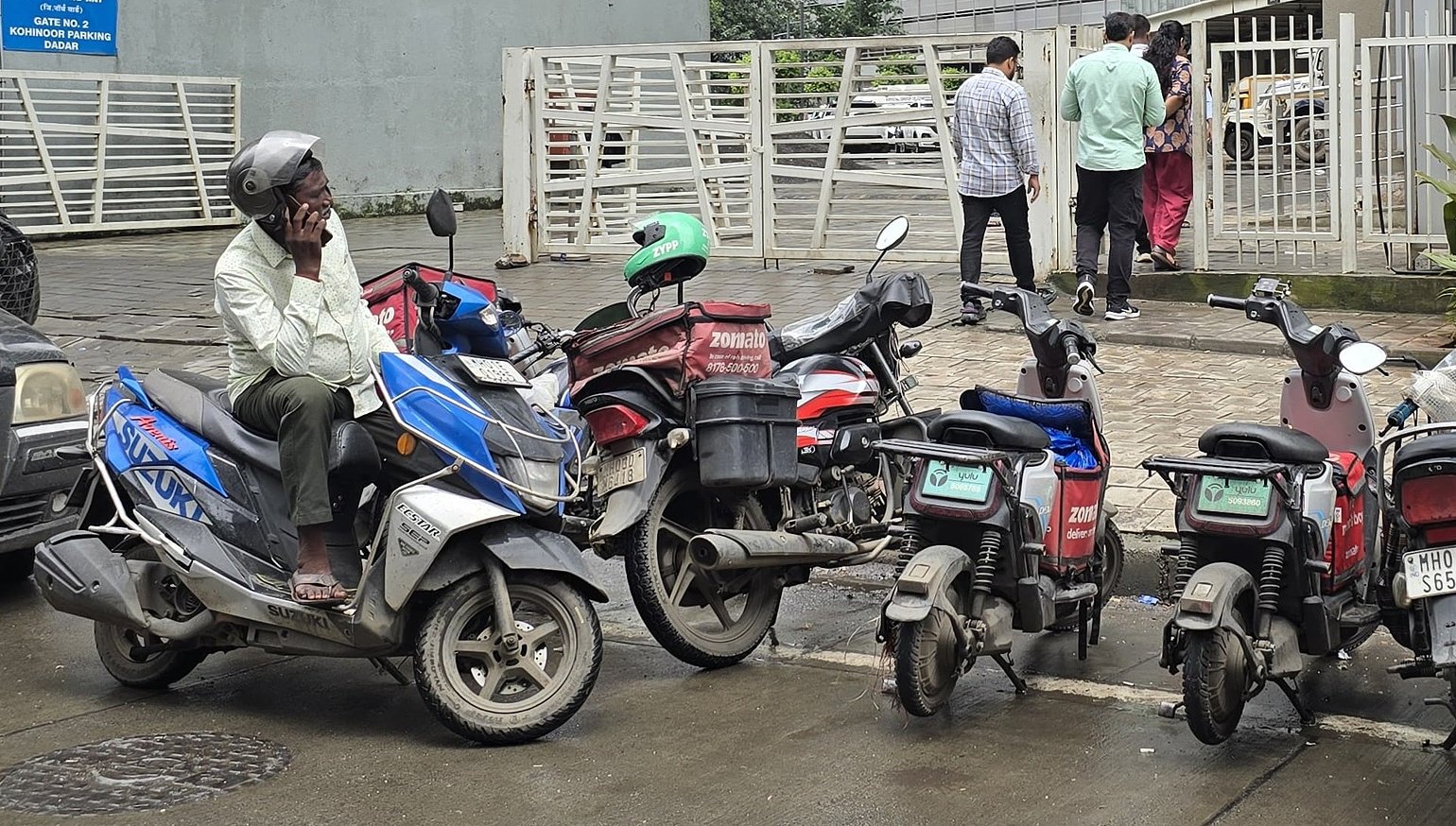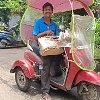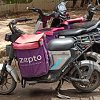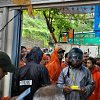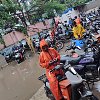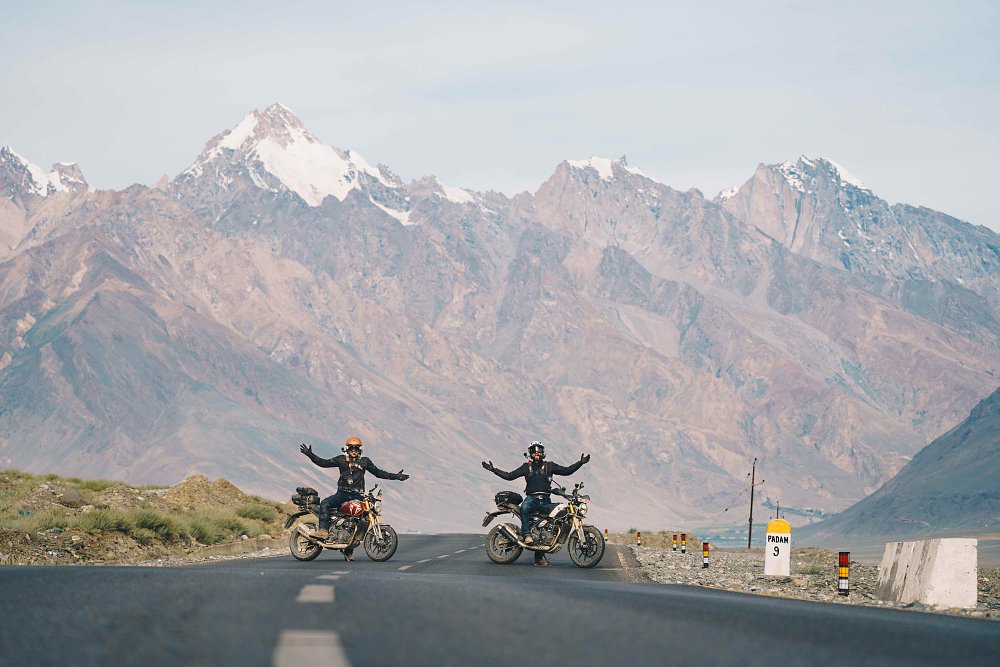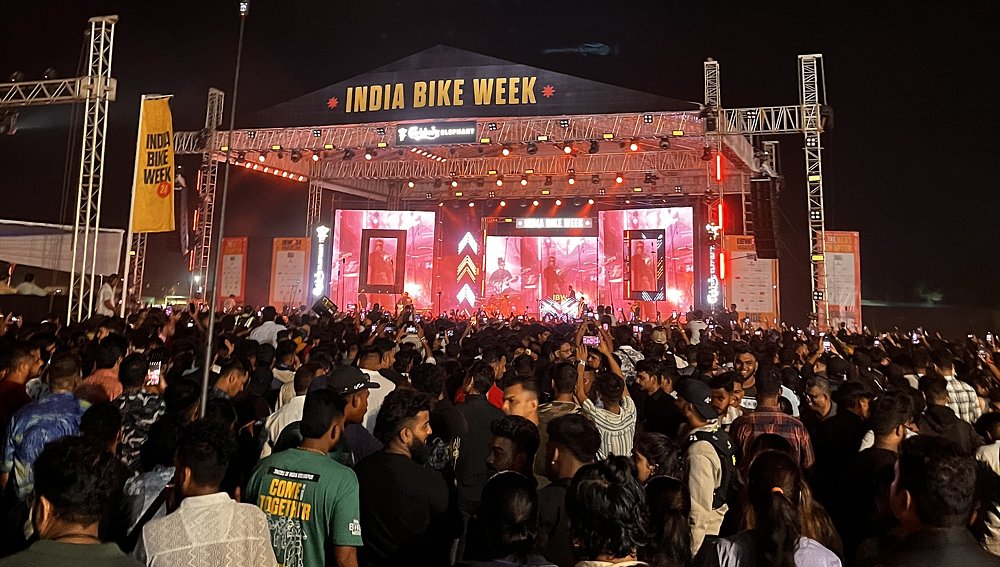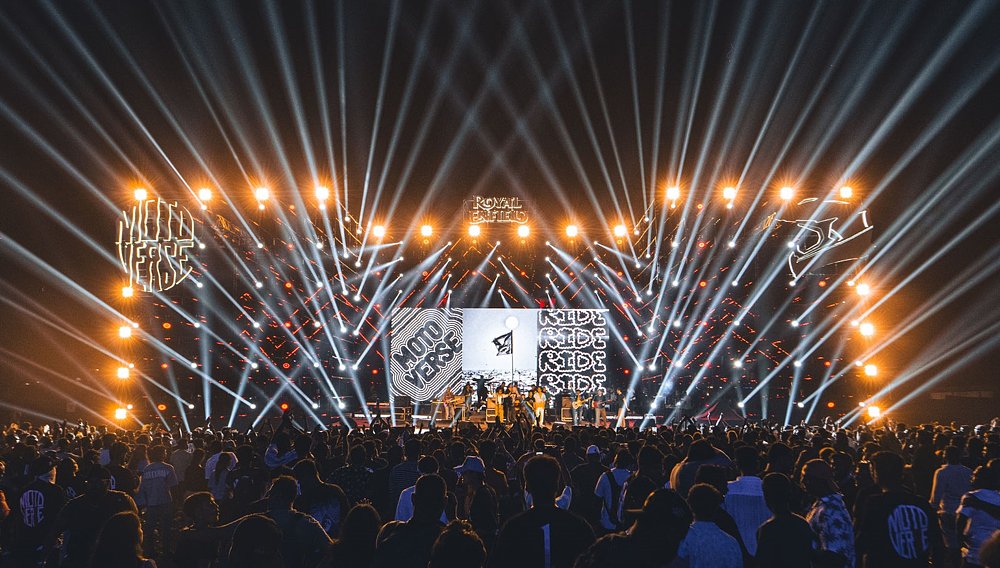It's 9:04 a.m. in Mumbai. The streets are already alive with honking horns, barking dogs, and a low hum of urgency. In the middle of it all, Abdul straps on his helmet and carefully climbs onto his red Honda Activa, a popular, low-cost scooter in India, modified with two extra wheels for balance. Childhood polio affected one of Abdul's legs. But that hasn't stopped him from riding.

His scooter isn't flashy. It's not for fun or leisure. It's a tool for survival.
India has around 7.7 million gig workers, according to the government agency NITI Aayog, and food delivery platforms are one of the fastest-growing segments. Most riders are young men from working-class backgrounds, many supporting families. Abdul is one of those riders.
He opens the app, checks the delivery route, and nudges the scooter into the thick Mumbai traffic. No time to waste. No room for error.
Pressure to deliver
Delivery apps promise customers fast arrivals. The weight of that promise falls on the riders. Once Abdul logs in, the orders start coming, each one with a ticking clock. A rider's income is shaped by speed, customer ratings, and how many orders they complete.
Abdul usually works 10 to 12 hours a day and completes around 20 to 25 orders. On average, he earns ₹20 to ₹30 (roughly $0.24 to $0.36 USD) per delivery. The platform offers bonuses for hitting high-order targets in a day, but imposes penalties for delays or cancellations. Those penalties can wipe out ₹50 to ₹100 (about $0.60 to $1.20 USD) in one shot. That's more than the pay from two or three orders.
"Some days it feels like you're just making up for one penalty the whole shift," he says.

To maximize income, riders often juggle two or three apps at once, switching based on demand. The job has no set schedule, which gives riders some flexibility but also means no paid leave, no job security, and no fallback if they get sick or injured.
Before this, Abdul worked as a lift operator. His salary was fixed and low. Now, the more he delivers, the more he earns, at least in theory.
"This job gives me freedom. If I want to earn more, I just stay online longer," he says. "But if I take a break, I don't get paid."
There's rarely time for rest. Most riders eat at roadside stalls between orders or skip meals altogether. Many complain of back pain, sore knees, and fatigue from long hours on two wheels. On rainy days, they wear oversized raincoats and wrap their phones in plastic so the navigation still works.

When the bike is a job, not a joy ride
Riders like Abdul typically use low-cost 100 cc to 150 cc scooters or motorcycles, economical and easy to maneuver through narrow streets. Many bikes are secondhand. Gasoline costs around ₹100 per liter (over $1.20 USD, or $4.50 USD per U.S. gallon), and that eats into daily profits quickly.
Electric bikes are growing in popularity due to lower running costs. One rider rigged a huge insulated box to the back of his e-bike to carry multiple orders. For these riders, the bike isn't a lifestyle accessory. It's their office, their toolkit, their livelihood.

Traffic, heat, rain, and keeping up the pace of deliveries aren't the only challenges. Sometimes, riders face social tensions. In 2019, a high-profile case made headlines when a customer in another state demanded delivery from a rider who was not Muslim. The company stood firm and declined the request, saying, "Food doesn't have a religion." Many riders across the country, including Abdul, remember how that story sparked conversation and support online.
The challenges build solidarity. WhatsApp groups help riders share tips, route updates, or support if someone breaks down.
And then there are the rare kind gestures. "One day, a customer gave me cold water and said, 'Thank you, bhaiya'," Abdul recalls. "It was small, but it felt big."
For motorcycle lovers in places like the United States, riding might be about weekend fun. For Abdul and his fellow delivery riders, it's something else. His scooter doesn't roar with rebellion. It hums with responsibility.
No glamor. No shortcuts. Just grit, endurance and a quiet determination to keep going.




